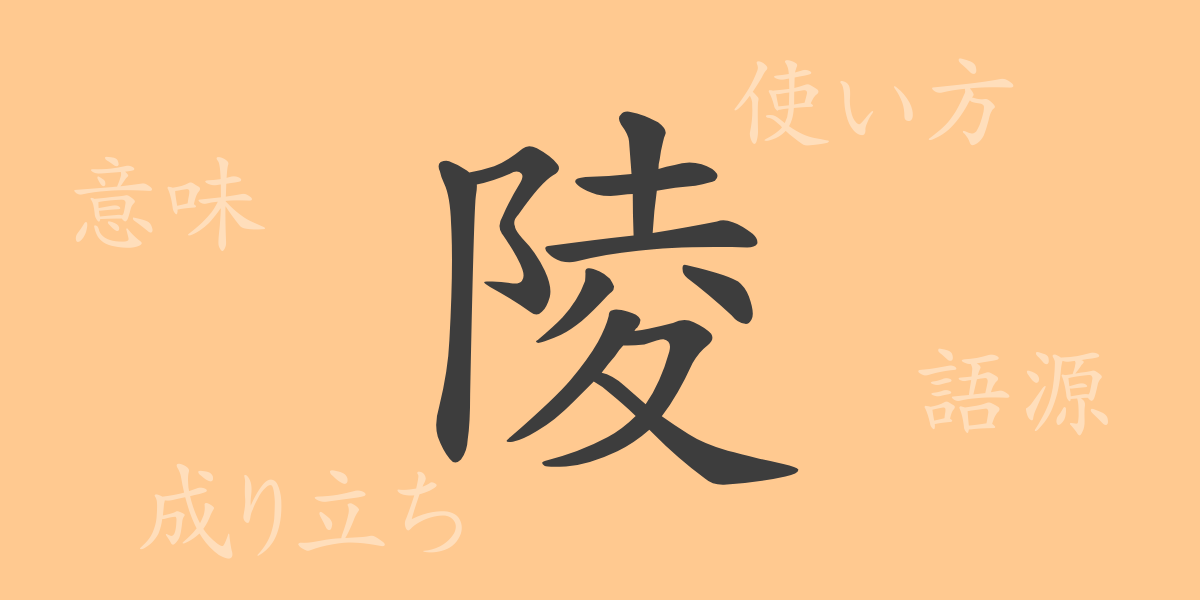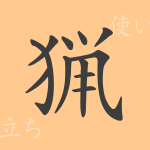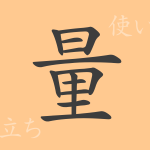The written culture of Japan is profoundly deep, with Kanji (Chinese characters) being particularly rich in diverse meanings and usages. In this article, we will focus on one of the common-use Kanji, “陵” (りょう, ryou), delving into its origin, meaning, pronunciation, and the compounds in which it is used. Through exploring the historical and cultural significance of this single character, we invite you to experience a glimpse of the world of Kanji.
Origin of 陵 (りょう, ryou)
The Kanji “陵” (りょう, ryou) has been used historically to refer to burial mounds in ancient China. This character is composed of two parts: “阜” (ふ, fu), which signifies a mound of earth, and “夌” (りょう, ryou), which represents the slope of a hill or a mound. Therefore, “陵” originally referred to an elevated mound of earth, specifically denoting the tombs of kings and nobles. Over time, this Kanji has come to possess various meanings and usages, maintaining a significant place in modern Japanese.
Meaning and Usage of 陵 (りょう, ryou)
The Kanji “陵” (りょう, ryou) primarily refers to a grave or burial mound. Specifically, it is used to denote the tombs of emperors and members of the imperial family, conveying a sense of respect and high status. Metaphorically, it can also describe something that stands majestically or symbolizes high status and power.
Pronunciation, Stroke Count, and Radical of 陵 (りょう, ryou)
To accurately understand the Kanji “陵” (りょう, ryou), it is essential to know its pronunciation and structure.
- Pronunciation: The On’yomi (音読み, Chinese reading) is “リョウ” (りょう, ryou), and the Kun’yomi (訓読み, Japanese reading) is “みささぎ” (みささぎ, misasagi).
- Stroke Count: “陵” (りょう, ryou) consists of a total of 11 strokes.
- Radical: The radical is “阜” (おかへん, oka-hen), which is related to characters signifying land or earthen mounds.
Compounds, Idioms, and Proverbs Using 陵 (りょう, ryou)
Here are some compounds and idioms that include “陵” (りょう, ryou):
- 皇陵 (こうりょう, kouryou): The tomb of an emperor or a member of the imperial family.
- 陵辱 (りょうじょく, ryoujoku): To inflict deep humiliation; also refers to that humiliation itself.
- 陵墓 (りょうぼ, ryoubo): The tomb of a noble or royal family member.
- 陵遅 (りょうち, ryouchi): Delay or procrastination.
Each of these compounds and idioms reflects the nuanced meanings associated with “陵” (りょう, ryou), showcasing the richness of the Japanese language.
Summary on 陵 (りょう, ryou)
Each Kanji character carries a long history and cultural significance embodied in its form and sound. “陵” (りょう, ryou) is no exception, originating as a word for ancient burial mounds and continuing to be used in various forms in modern Japanese. We hope this article has helped you appreciate the deep meanings and background of the Kanji “陵” (りょう, ryou).

























